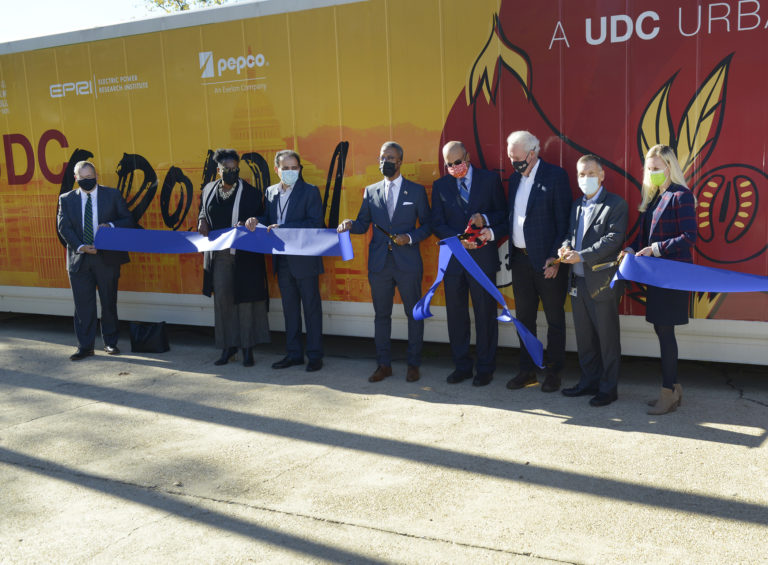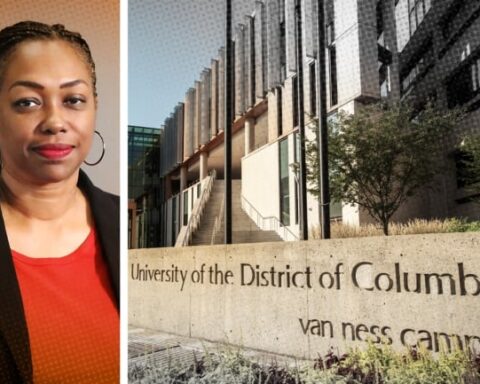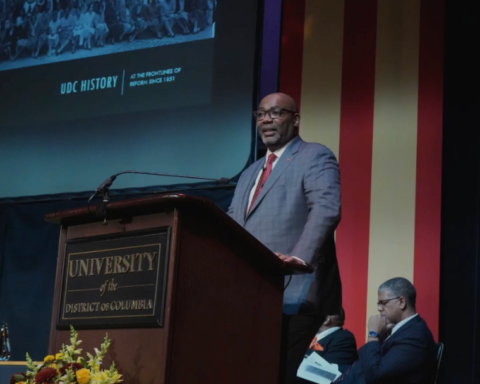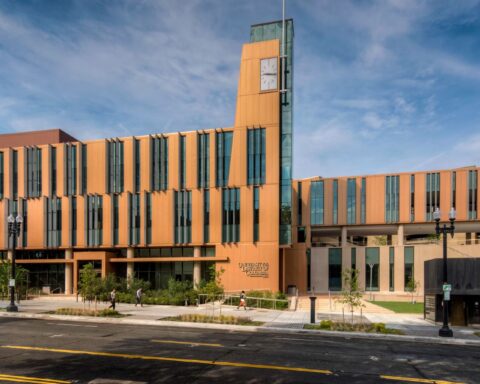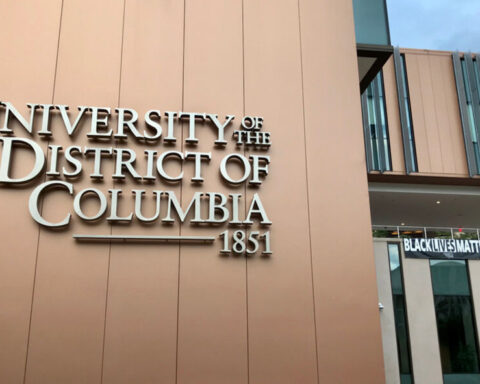By Erin Looney,
Community leaders gathered at the University of the District of Columbia (UDC) Bertie Backus Urban Food Hub to unveil an innovative, new agricultural growing system as part of a collaboration between Pepco, UDC College of Agriculture, Urban Sustainability and Environmental Sciences (CAUSES) and the Electric Power Research Institute (EPRI). The initiative furthers UDC CAUSES’ goal of deploying sustainable farming technology to provide residents with fresh food and teach students and the community more about sustainable agriculture and entrepreneurship.
The initiative supports vocational and educational opportunities alongside new technology, supported by Pepco and EPRI, to help students explore the energy industry and develop the skills needed to fill future energy and agriculture jobs across the District of Columbia and the broader region. Beyond the educational component of this new technology, the agricultural pod (ag pod) – a sustainable indoor vertical growing environment that allows UDC to grow food year-round – also offers solutions to some of the challenges facing the community, including improving access to food and reducing energy costs.
“With a significant portion of the world’s population residing in urban spaces and challenged with food insecurity, UDC has an obligation to offer solutions as the only urban land-grant university in the nation,” said UDC President Ronald Mason Jr. “This ag pod holds one acre of food, which is a step in the right direction of meeting our community’s, and ultimately, the global need.”
“This is transformational for the community,” said Dr. Dwane Jones, dean of CAUSES. “We will be able to feed our neighbors with fresh and healthy produce from the ag pod all year round. We are creating a culture where we give back to our community using new, sustainable technologies to provide residents with a better way of life. We are so thankful to all of our partners for investing their time and energy into this project.”
“The partnership exemplified by UDC, Pepco, EPRI and the Ward 5 community coming together to create the ag pod project is exactly the type of collaboration that is required to address seemingly intractable issues of climate resilience, food insecurity and economic development. It is this type of innovation that will drive District residents toward a more equitable and sustainable future,” said Ward 5 Councilmember Kenyan McDuffie.
“Combining sustainable energy sources with agriculture and food production, especially for high needs areas, is bringing together the best of what the District’s future should look like. It also helps us address climate change and protect our planet,” said Tommy Wells, director of the Department of Energy & Environment. “I want to thank Pepco, UDC and EPRI for the innovation they have shown as partners to help educate the community, especially students, on the benefits of sustainability and future career possibilities. This partnership is the perfect example of how we will build a stronger, healthier District of Columbia.”
“As a major employer, service provider, community partner and neighbor, we have a responsibility to advance the social, environmental and economic health of the communities we serve, and an accountability to help develop the next generation of people who will continue to innovate for the future – this is what drives us,” said Dave Velazquez, president and CEO of Pepco Holdings. “This effort demonstrates how we can work together to deliver innovative, community-centered solutions on multiple levels.”
“Indoor farming has great potential to provide local produce year-round using less energy and water,” said EPRI Sustainability and Ecosystem Stewardship Research Manager Morgan Scott. “EPRI’s indoor agriculture national demonstration collaborative delivers benefits directly to communities while educating project collaborators, local stakeholders and the next generation of farmers as we seek to determine the potential energy and sustainability impacts of this growing industry.”
With support from EPRI, the ag pod was built within a shipping container to provide a space where communities can grow and harvest local vegetables and maintain sustainable food operations year-round in any climate. The 40-foot shipping container is equipped with energy-efficient LED lighting, efficiency cooling, integrated climate control and plumbing infrastructure needed to grow crops inside the container on a year-round basis. The ag pod is capable of growing diverse crops, including arugula, kale, radishes, swiss chard and a variety of lettuces and other greens.
Since 2014, EPRI has examined the operational, technological, sustainability and environmental characteristics for indoor agriculture by installing container farms across the United States and assessing their performance with local electricity providers, academic institutions and other community organizations.

